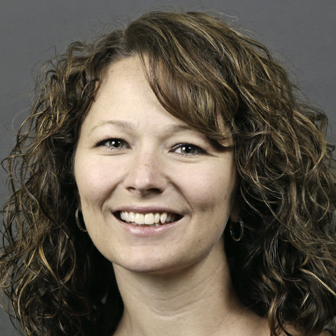Transforming Our Cancer Care: Operational Advances
Our cancer-fighting tools work even harder when we transform care to bring the right team, services, and information together at the right time for each patient. Recent operational transformations at Premier Health have inspired improvements from direct patient care to the data we use to inform our care.
Faster Breast Imaging Access
Our mammography team has decreased the time between procedures when multiple breast imaging studies are needed. These operational changes have improved patient access in the scheduling windows of screening mammograms to diagnostic mammograms, and diagnostic mammograms to breast biopsies:
- Scheduling. We reviewed access via available patient time slots and staffing, allocating additional time for diagnostic appointments aligned with radiologist availability.
- Staffing. We trained our team for competence at multiple locations, leading to more flexibility with our coverage model.
- Referrals. We partnered with referring primary care providers to streamline steps required when a diagnostic mammogram results in the need for breast biopsy.
Finding Palliative Care Needs Earlier
With an increasing focus on the palliative care needs of cancer patients, we began work in early 2020 on an improved screening tool for identifying these patients and doing so earlier in a disease process. We focused some of that work in the emergency department to better capture the palliative care needs of patients who present with poor prognoses. Other work included getting social workers more involved in identifying patient stressors that may indicate palliative care discussion and/or referral.
Improved Pathology Communication
Our pathologists have been working to improve several aspects of pathology results reporting. A key goal has been accelerating results to ordering physicians to aid in treatment decisions and planning. Faster results help cancer specialists better coordinate treatment timing, including surgeries, and help ease patient anxiety. The effort also has produced:
- A process for providing verbal updates/explanations to physicians whose orders are taking longer than expected
- Reformatted, standardized reports that better highlight pathology diagnoses
- Expanded reports access for nurse navigators, enhancing their timely follow-up with patients with positive pathology results
New Tools: OncoLog/OncoNav
A new software tool implemented in early 2020 – OncoNav – is helping optimize the work of our nurse navigators for greater impact and patient satisfaction. It replaced a facility-specific documentation process that limited report generation, patient information sharing and identification of barriers to care. Most importantly, OncoNav gives our nurse navigators a better tool for journeying with cancer patients. It helps them identify barriers to care – financial, transportation, social, and cultural – as well as document these barriers across the system for better understanding and program improvement. In addition, OncoNav improves data collection and report generation abilities, aiding in the Commission on Cancer certification process.
During research of OncoNav, Premier Health found opportunity to update its cancer registry software as well, choosing OncoLog. This total-solution software pairs with OncoNav to improve case finding for navigators and eliminate data entry duplication.
Oncology Registry Restructuring
With the selection of our new cancer registry software, OncoLog, our patient database has become connected system wide, replacing independent, facility-specific registries. The new registry software helps create more consistency in data collection and abstraction across our health system. In addition, we now have a system registry supervisor who oversees registry operations at all Premier Health locations.
Streamlined Cancer Conferences
The increasingly virtual world of 2020 sparked a rethink in how Premier Health conducts cancer conferences. An effort is underway to present specific disease conferences, starting with lung cancer, system-wide instead of at a single hospital location. The benefits include improved standardization and efficiency, as well as enhanced physician access to a broader range of specialists associated with a specific cancer type. Having an entire system of cancer specialists reviewing a patient’s case can bring more opportunities for patient care and treatment, as well.
“With the implementation of a secure videoconferencing tool and with COVID-19, we were really forced to use our technology and to go 100 percent virtual,” explains Alison Potts, MSN, RN, director of nursing. In the future, conferences will be a combination of in-person and virtual, making it easier for physicians from any Premier Health location to present their cases and have more specialized conversation than they might at a more generally focused conference. In addition, the newly implemented secure technology makes it easier to share CTs, X-rays, and PET scans.


